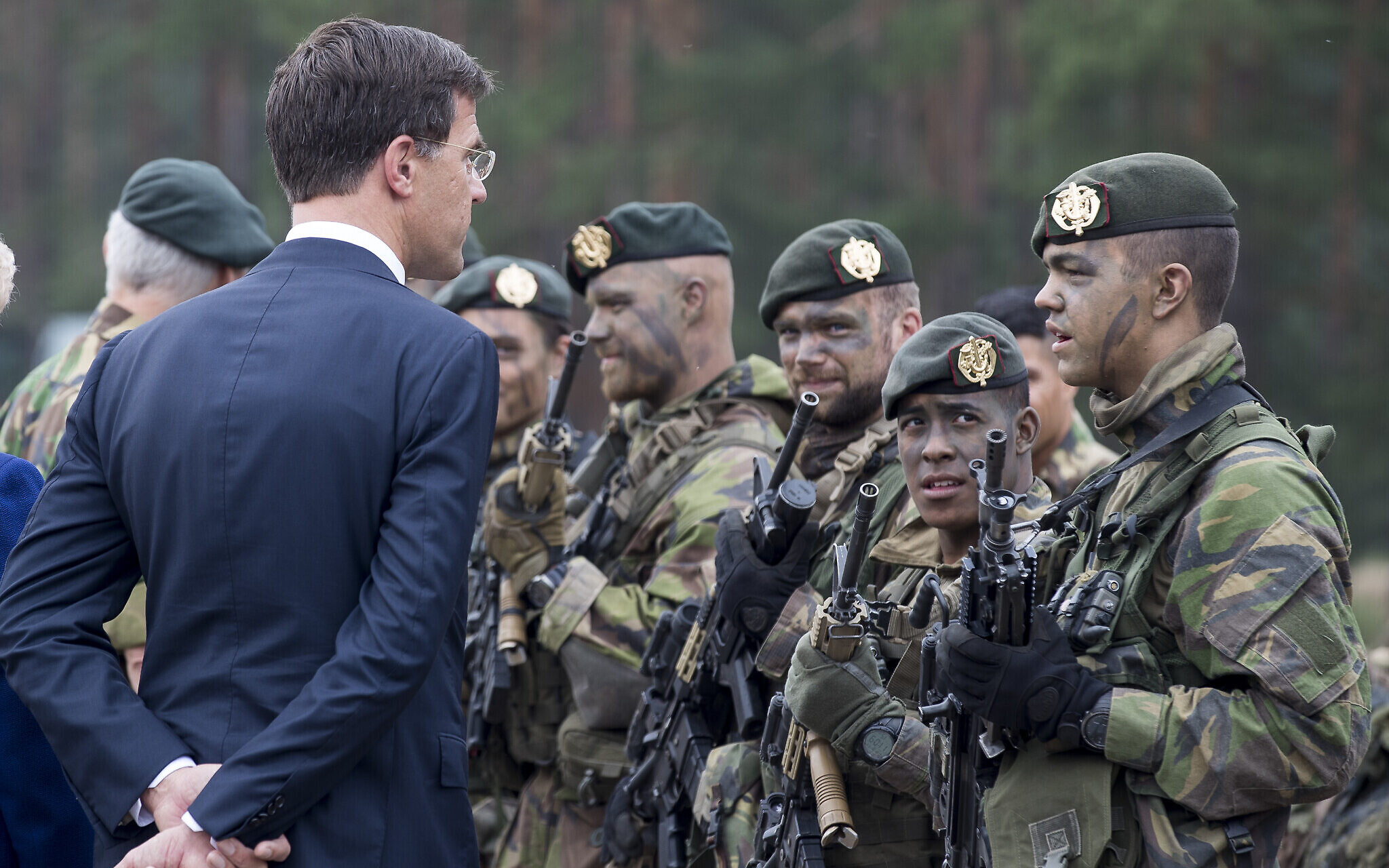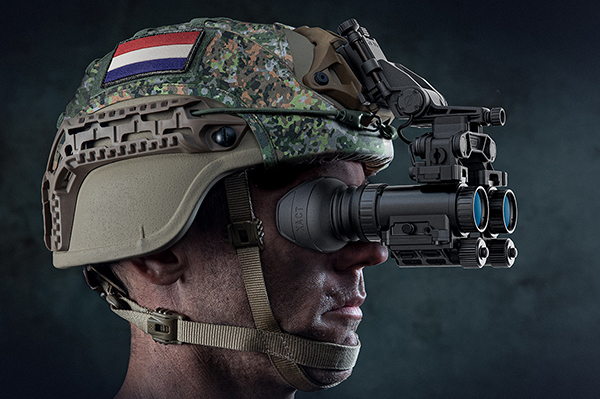Microsoft has opened a new quantum research laboratory at the Delft University of Technology in the Netherlands. On February 21, King Willem Alexander opened the Microsoft Quantum Lab on the Delft University of Technology campus in the Dutch capital.
The Qutech Research Institute works with industry in collaboration with the Delft University of Technology and the Dutch Organisation for Applied Scientific Research (TNO) to develop quantum computers and quantum internet. The Microsoft Quantum Lab focuses on the development of qubits, the building blocks of a quantum computer.
The new Microsoft Laboratory at the Delft University of Technology is the latest step towards transforming quantum computing into reality. The laboratory results from a partnership between Microsoft and Qutech Research on quantum computers’ building blocks. Leo XXX Kouwenhoven, science director of the Microsoft Quantum Lab and Professor at Delft University, said: “With the opening of the new Microsoft Quantum Laboratory, we see what is possible business, science and government unite.”
The Qutech vision is to develop new theories and methods to overcome the many challenges of implementation of quantum technology and to create valuable applications such as the first scalable quantum computer and a secure quantum internet. Furthermore, the application of quantum technology could lead to breakthroughs in areas such as new materials and new medicines. We are taking the next important step in building the best quantum technology ecosystem in Europe with our in-house quantum system.

Ongoing research into seemingly simple questions
Rob Elsinga, national technology officer at Microsoft Netherlands, brought this up to illustrate simple questions that underlie basic qubits research. Simple questions to which we do not know the answers but which involve complex biological processes.
In short, quantum computers can do fantastic things in health care, energy, and many other areas. For example, by understanding photosynthesis, quantum computers can be used to produce more efficient solar cells.
A research team from Qutech in the Netherlands reports on the first multi-node quantum network connecting three quantum processors. In addition, they succeeded in demonstrating a necessary quantum network protocol in principle. The company employs 230 people, including 30 transmission system operators, and contributes the know-how of 100 other employees.
The research team of Qutech in the Netherlands and its results are essential for a quantum internet. Moreover, the national plan for quantum technology is reflected in Microsoft’s ambition to make the Netherlands the international capital of quantum technology. The House of Quantum, also known as SMART, is a 12,000-square-foot quantum Europe that will build an ecosystem of businesses, investors, and researchers to create the quantum technology companies of tomorrow.
Work is already underway; scientists collaborating
The House of Quantum in Delft will be housed on the Delft University of Technology (TU) campus in a building where work has already begun. The university says the house will be the physical heart of the ecosystem. It will host various start-ups and business laboratories that will share technology facilities.
The building will contain a high-tech environment for the development and testing of quantum technologies. The Delft Chaturbate Circuits (DCC) team will be happy to work together to develop state-of-the-art quantum technology. The DC design cycle will be critical for rapid analysis, construction, manufacturing and measurement.
Fulfilling the high expectations of quantum computers and the quantum internet requires investment in money, time and effort. For example, Intel, the world’s largest chipmaker, invested in quantum research in 2015.
With the implementation of quantum computing technology, quantum networking is also coming into the spotlight. Powered by the Internet, any two computers on Earth can connect, enabling applications that reached unprecedented proportions decades ago. However, while the field has focused on universal quantum computers, the idea of joining them has been relegated to the distant future.
Today, researchers in many laboratories around the world are working on the first version of a quantum Internet – a network connecting two quantum devices over long distances, such as a quantum computer and a sensor –. Just as the Internet distributes information through bits of 0 and 1, a future quantum internet could use quantum bits of 0 and 1 simultaneously. Such a device would have to capture every photon it encounters. The quantum computer would have to have at least a few hundred qubits to correct and process the signal.
World-class quantum research in the Netherlands
A 2018 paper described a laboratory experiment that attempted to detect the Majorana zero-mode particle by measuring the conductivity of a superconductor at cryogenic temperatures. This is important because scientists want to use it as a qubit in a quantum computer and believe that it is more robust to store information than today’s qubits. In addition, quantum codes break leading encryption algorithms in classical computers. These codes suggest that quantum computers not only exploit the ability of small, cold objects to exist in multiple superimposed states. But also, they could have killer applications. Cracking the code could trigger a decades-long effort to build them.
The Delft University of Technology has now world-class quantum research. It offers expertise in electrical engineering, physics and computer science relevant to quantum technology. A paper published two years ago in Nature, led by Microsoft scientists, reported discovering theoretical quasiparticles that scientists believe could be useful for future quantum computers. The article was withdrawn after it was found that some of the data presented were inaccurate. So it is still in the early stages. By trial and error, scientists expect to do more research to benefit and change the world as we know it.
The role of Qutech is to reach out to companies and try to integrate them into quantum technologies. TNO is an applied research institute familiar with research and ground-breaking studies and has supported the international high-tech industry with innovations for decades.
Israel providing war technology to the RNLA
Elbit Systems, Israel’s largest private defence contractor, has won a contract to provide new tactical vehicle computers to the Royal Netherlands Army (RNLA). In Israel, Elbit obtained a follow-up $50 million contract with the Dutch Ministry of Defence (MoD). To provide additional digital soldier and vehicle systems to the RNLA. Last month, the company also secured a supply contract for the E-Lynx (SDR) software-defined radio solution for combat battalions in the Spanish Army.
Under the contract, the Dutch Ministry of Defence has awarded an additional follow-up contract for seven years. XACT-NV32 delivers high-resolution images under adverse conditions for deployment to the Dutch Armed Forces.
Additionally, BAE Bullchat Systems Hagglund selected Israel Elbit Systems to provide the Royal Netherlands Army with the Iron Fist Active Protection System for armoured vehicles under an $82 million contract announced this week.
These contracts are worth over $65 million to purchase digital night vision systems for soldiers in the Netherlands Armed Forces. In addition, the Royal Dutch Army will receive electro-optical command towers as part of an $82 million contract announced this week, Israeli company Elbit said in a press release.
Under the contract, the company will supply the products for two years. In December 2020, the Israeli company secured a $2.7 million contract to upgrade aircraft for the Romanian Air Force. Under the agreement, Elbit Systems will install advanced avionics systems for live training and embedded virtual avionics systems.

A seven year partnership
The first contract will be executed over two years, potentially for a further follow-up contract over seven years. The MoD awarded the additional contract under the original contract for $1.5 million.
The US Department of Defense contracted Northrop Grumman Corporation to deliver the Forward Air Defense Command and Control System (FAAD-C2) in July 2020. In addition, under a $50 million contract to supply the Royal Netherlands Army with digital soldier systems. Elbit Systems Ltd. will provide vehicle integration systems and enhanced Battlenetwork capabilities, including command and control systems.
The Elbit Systems XACT product family is already in use in several NATO countries, including Germany and the Israeli and Australian military forces. In December 2020, Elbit Systems Ltd. secured a USD 15 million contracts to supply Micronight Vision Systems to the Dutch armed forces. “Elbit sees the Netherlands as a critical market for the company. We intend to strengthen further our local industrial cooperation and investment in the coming years.
Elbit Systems C4I and Cyber look forward to continuing their partnership with the Dutch MOD program to contribute to the viability and effectiveness of Dutch soldiers. The Israeli enterprise is an international high-tech company that operates in a wide range of defence, homeland security and trade programs worldwide. Elbit and its subsidiaries are active in aerospace, land and naval systems. They also command and control systems, communications, computer reconnaissance, surveillance and reconnaissance (C4ISR), aircraft systems. Not only that but they also provide advanced electro-optical and electro-optical space systems (EW suite), signal reconnaissance systems. Famous for their reliantt data communication systems, radio and cyber-based systems and munitions.
